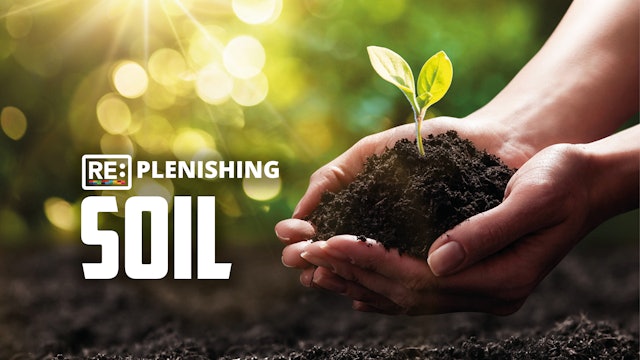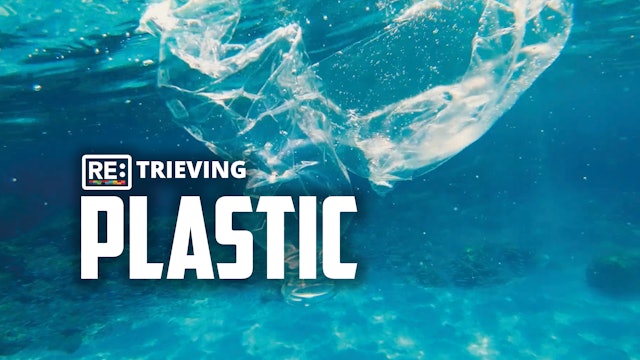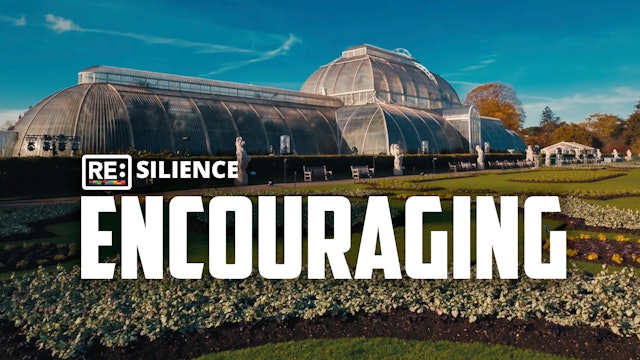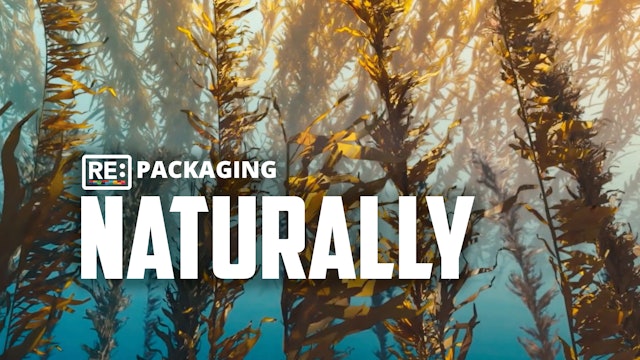RE:TV Research and Scientific Innovations
RE:TV highlights some of the most inspiring scientific innovations and ideas that are emerging in response to the climate and biodiversity crisis.
RE:TV was announced at the World Economic Forum at Davos in January 2020 by His Majesty King Charles III (then HRH The Prince of Wales) alongside the Sustainable Markets Initiative. Both are inspired by his long-standing commitment to environmental issues.
-
Reconsidering Design
Janine Benyus is an innovative biologist whose work has popularised the concept of Biomimicry, which she describes as “innovation inspired by nature”. Through conferences, appearances in documentaries, consultancy work and the Biomimicry Institute she co-founded, she has popularised the idea that...
-
Replenishing the Soil
In the last few decades, farmers around the world have grown dependent on synthetic fertilizers, which in the short term can have a huge impact on the productivity of land, but over a longer period of time deplete soils of natural microorganisms and nutrients, leach nitrogen into waterways, are c...
-
Retrieving Plastic
More than two-thirds of plastic in our oceans comes from rivers and canals. Preventing this plastic waste reaching the sea is essential if we are to protect marine environments and biodiversity.
The Great Bubble Barrier is an innovative approach to capturing fugitive plastic in waterways, develo...
-
Encouraging Resilience
The Royal Botanic Gardens, Kew is home to over 350 scientists whose mission is to halt biodiversity loss and to protect plants and fungi for people and planet.
Kew's patron, HRH The Prince of Wales, brought leaders from the business community to the Royal Botanic Gardens so they could hear first-... -
Refuelling Aviation
Using bacteria to create Sustainable Aviation Fuel from captured carbon
With 2.5% of global CO2 emissions generated by the aviation sector and 100 million gallons of jet fuel used each year by commercial airlines, decarbonising aviation fuel is essential if we are to achieve a Net Zero future.
Ba... -
Reactivating Chemicals
New Iridium is the Carbon-negative chemical manufacturing inspired by photosynthesis.
The chemicals industry generates trillions of dollars of revenue globally, producing a wide range of products from packaging and paint to food and pharmaceuticals. However, many of the manufacturing processes i...
-
Resurfacing Heat
Geothermal technology with a key part to play in the clean energy transition. With global demand for energy expected to increase by 50% by 2050, it is essential we find a range of energy sources to replace fossil fuels and support the transition to a clean energy future.
Eavor’s revolutionary ...
-
Reabsorbing Carbon
ReTV looks aft accelerating carbon capture from natural chemical weathering. With more than 2 trillion tonnes of excess carbon dioxide in the atmosphere today, we need to accelerate efforts to capture existing #CO2 as well as reduce our emissions.
The oceans are one of the largest carbon sinks on... -
Resilient Wind Power
Zephyr Power's wind turbines near Karachi provide much-needed renewable energy in Pakistan at the same time as restoring local mangroves; a Nature Based Solution that helps reduce the devastating impact of floods in the Indus delta and draw down CO2 from the atmosphere.
Kumayl Khaleeli, CEO of Ze... -
Repackaging Naturally
Notpla have created a home compostable alternative to plastic which is derived from seaweed. An abundant, diverse organism found all over the world, seaweed can be cultivated without competing for land with food crops, doesn’t need fresh water or fertiliser, and actively contributes to de-acidify...
-
Reinvigorating Crops
Plants are essential to human survival, but the climate and biodiversity crisis means that 40% of all plants are facing extinction, and many of the food crops we rely on are struggling to adapt to the changing environment. Finding ways of helping crops become more resilient to extreme conditions ...
-
Reconsidering Ecosystems
"A key concept in ecology is that no single species exists on its own. Everything depends on other species to survive, and that includes humans.”
Thomas Crowther is professor of ecology in the Department of Environmental Systems Science at ETH Zurich where he founded the Crowther Lab. He is also ... -
Redesigning Renewables
Nature has evolved over millennia, with every species alive today the product of generations of adaptation and refinement. Janine Benyus of the Biomimicry Institute sets out how the guiding principle of biomimicry is to learn from this vast resource of natural research and development, seeking in...















